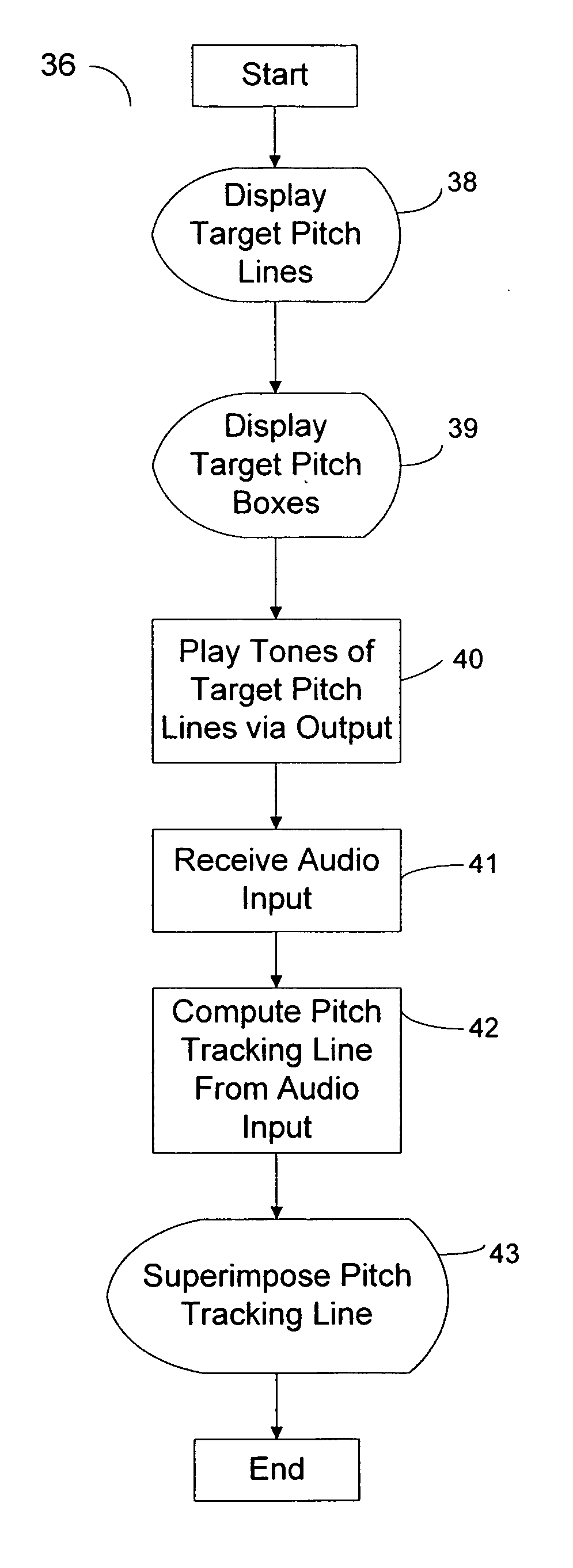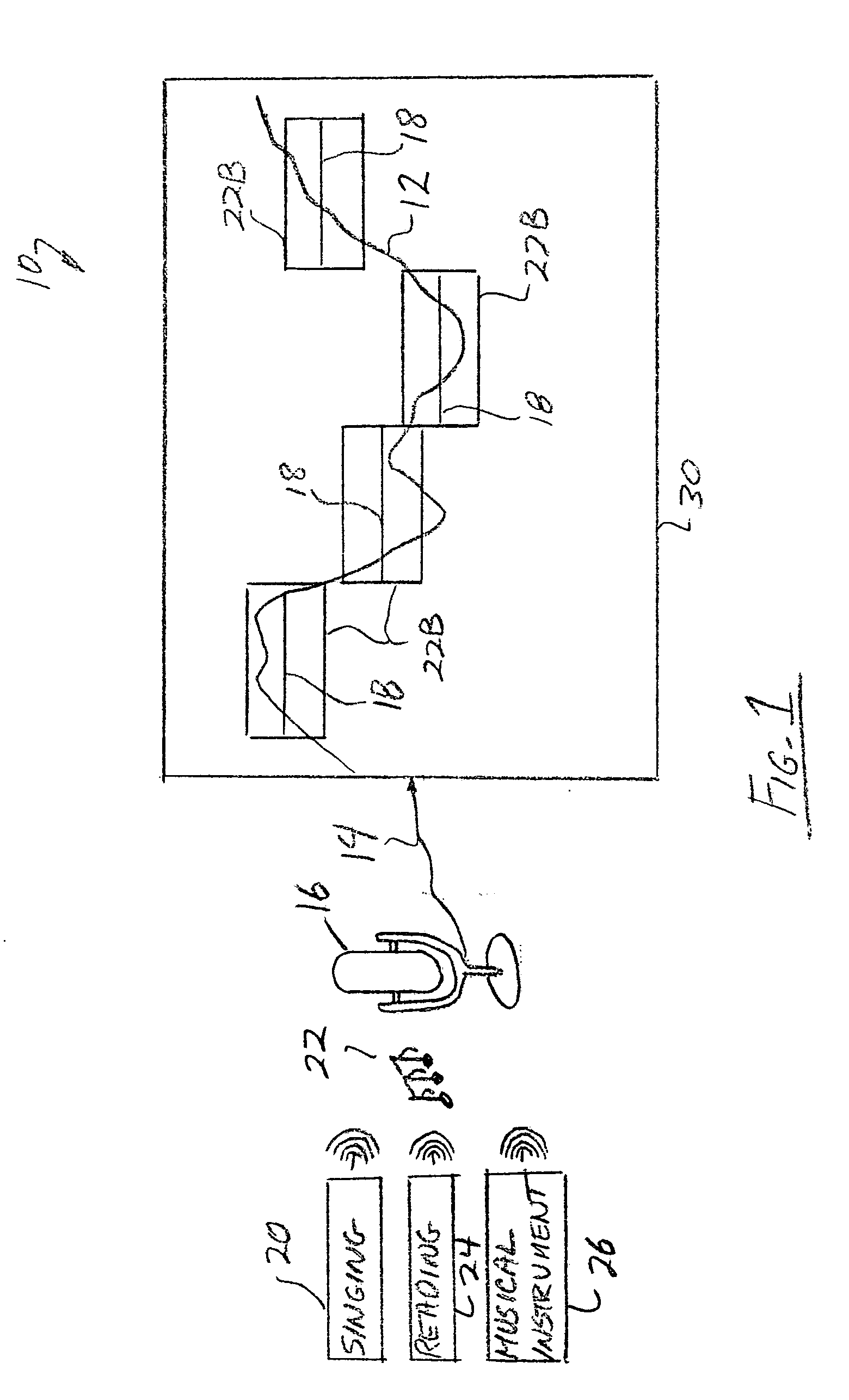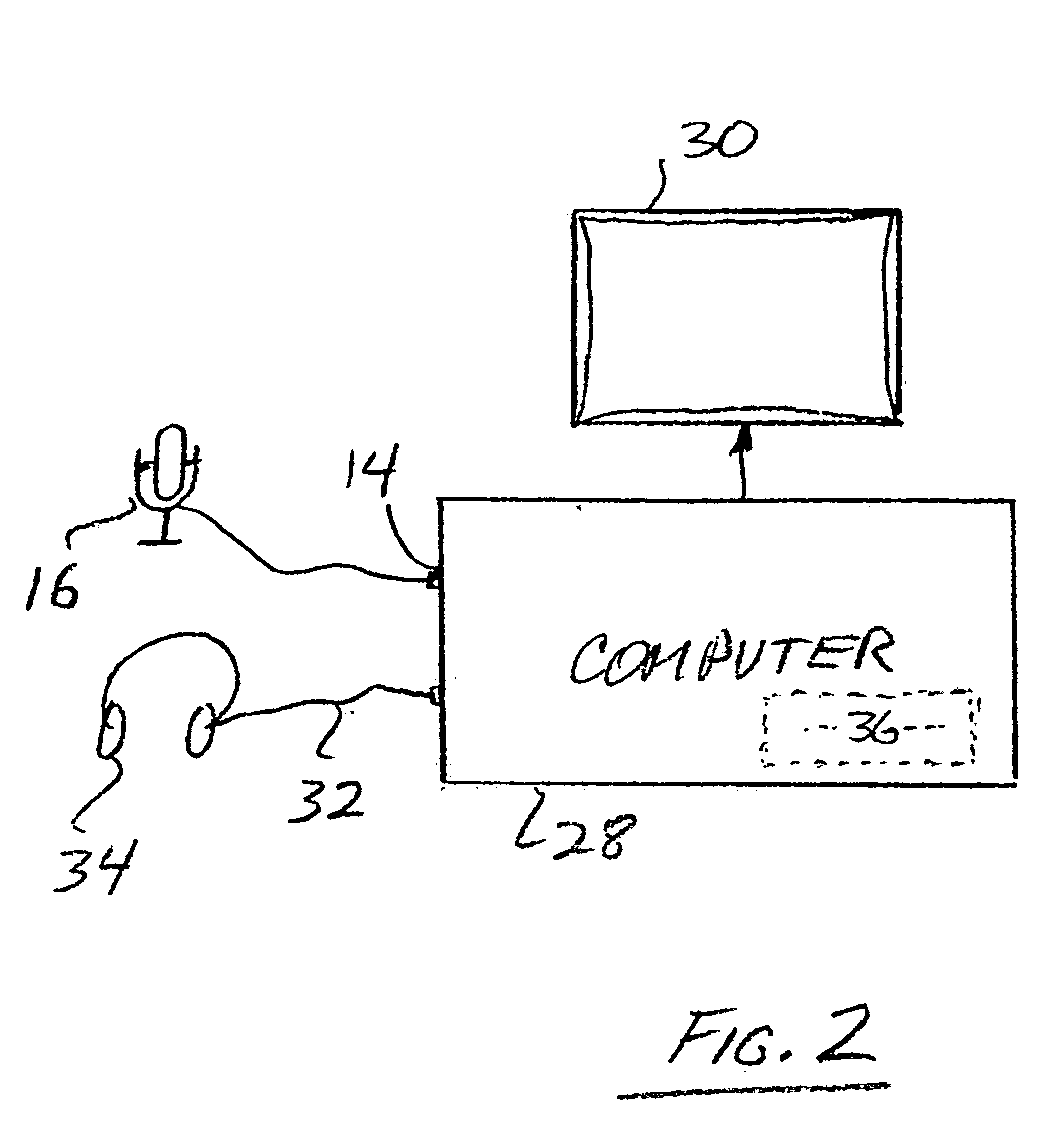Computer-aided learning system employing a pitch tracking line
a computer-aided learning and pitch tracking technology, applied in the field of computer-aided learning systems, can solve the problems of not being able to visually quantify the accuracy of a singer the patent fails to disclose a meaningful visual representation of whether the singer is singing in tune or out-of-tune, so as to reduce the transition time and the length of the target pitch box
- Summary
- Abstract
- Description
- Claims
- Application Information
AI Technical Summary
Benefits of technology
Problems solved by technology
Method used
Image
Examples
Embodiment Construction
[0054] Referring to FIG. 1, the computer-aided learning system 10 of the invention graphically displays a pitch tracking line 12 of an input 14 such as an audible input from a microphone 16 superimposed onto graphical target pitch lines 18 representative of the desired pitches. In the preferred embodiment, the audible input 14 comprises a person who is singing 20 and the graphical display of the target pitch lines represent the musical notes 22 of the song being sung. The superposition of the pitch tracking line 12 over the target pitch lines 18 provides a real-time visual feedback of the pitch of one's voice relative to each note of the song being sung. The invention therefore aids the person to sing in tune with the notes 22 of the song.
[0055] The computer-aided learning system of the invention may also be employed for assisting a person such as a child to learn how to read 24 by “singing” the words of the text (or to learn a foreign language). More particularly, it is known that...
PUM
 Login to View More
Login to View More Abstract
Description
Claims
Application Information
 Login to View More
Login to View More - R&D
- Intellectual Property
- Life Sciences
- Materials
- Tech Scout
- Unparalleled Data Quality
- Higher Quality Content
- 60% Fewer Hallucinations
Browse by: Latest US Patents, China's latest patents, Technical Efficacy Thesaurus, Application Domain, Technology Topic, Popular Technical Reports.
© 2025 PatSnap. All rights reserved.Legal|Privacy policy|Modern Slavery Act Transparency Statement|Sitemap|About US| Contact US: help@patsnap.com



